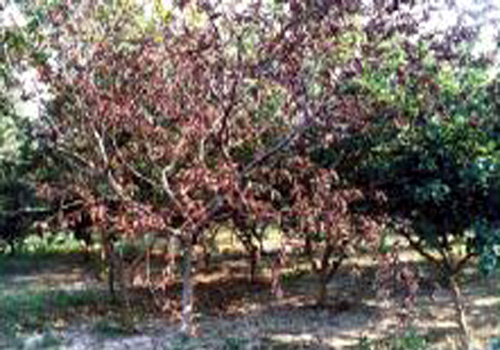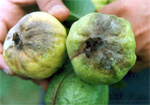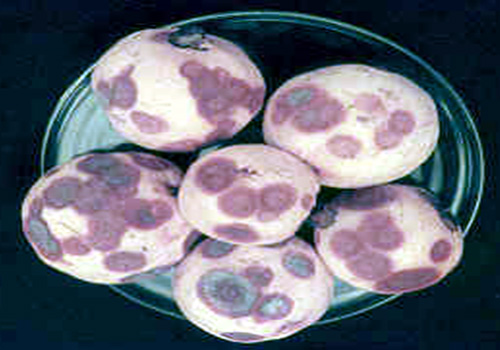Guava general information
Guava (Psidium
guajava L) of the myrtle family (Myrtaceae),
is the fifth most widely grown fruit crop in India after banana,
mango, citrus and papaya. The fruit has gained considerable
prominence in India due to its high nutritive value,
moderate prices, pleasant aroma and good flavour.
Guava is a rich source of vitamin C and pectin and moderate source
of B vitamins, calcium, iron and phosphorus. It is one of the
commonest fresh fruits liked by the rich and the poor alike and is
popularly known as the ‘apple of tropics’ or `poor man’s apple’.
Only a small quantity of the production is utilized for processing
in the form of jelly, canned cups, juice and nectar, cheese, toffee
bar, powder, flakes and strained baby foods have also been prepared
besides commercial pectin.
 Symptoms
start with the onset of monsoon. Light yellow foliage appearance
with loss of turgidity and epinasty. At a later stage, plants
show unthriftyness. Subsequently, premature shedding and
defoliation.
Symptoms
start with the onset of monsoon. Light yellow foliage appearance
with loss of turgidity and epinasty. At a later stage, plants
show unthriftyness. Subsequently, premature shedding and
defoliation.















